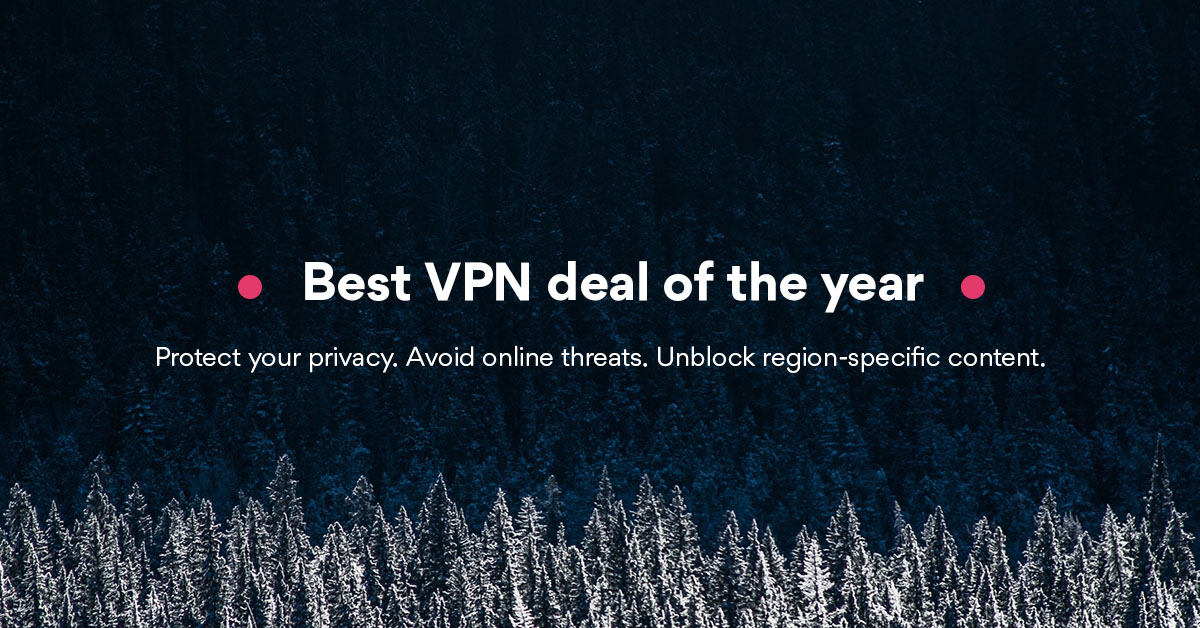In this article we will introduce the concept of using a VPN and their updated counterpart the residential VPN for bypassing the various blocks and filters you’ll encounter online.
The original use and indeed still an important role for a VPN is that of security. It is in practice a secure, encrypted tunnel which protects all your data from being logged and monitored. It also protects your identity and location from the same issues. Did you know that without a VPN every activity you do online is logged at your ISP for example ? That’s every website, every file downloaded, every video watched and message sent via your internet service – all recorded. A complete and total register of all our online activity at a single location and potentially accessible to anyone with the right permissions. A VPN service stops all this and prevents your internet service providers from holding this sort of information about you. Even simple free VPN software will at least give you some security however there are certainly other risks to using a non-paid service including adware and potentially malware being installed on your devices!

However surprisingly it’s not the privacy aspect which has encouraged millions of us to use a VPN service. It’s more the rise of a practice called geo targeting where websites determine what you can access based on your physical location. You can see if it you have ever got blocked from your favorite web services because of your location, it’s much more common than you would imagine.
The war waged on VPN services by the media companies has been going on for many years but it’s lately developed a new twist. Virtual Private Networks are now used by millions of people to bypass these internet filters, censorship and region locking. The latter term refers to the practice of restricting access based on your physical location while using your internet connection. It’s usually to due to some sort of licensing or copyright restrictions although it’s often simply profit maximization. It’s very common and for anyone who travels a lot or lives abroad can be a real problem.
Why People Use Standard or Residential VPN Providers
So let’s take an example – a US citizen spending some time in Europe will get barred from accessing all their usual home media services. Sites like Hulu and HBO for example will not be accessible. It doesn’t matter that these are paid services, acquired in the US and paid for with US currency – it’s the physical location that is important. While outside the USA they won’t have a US IP address and will ultimately only have access to media resources in the country they are located in. Even more global services like Netflix will redirect you to a localized version which can be a problem if you don’t speak that language well. So your US Netflix can turn into the Japanese one if you’re connecting from a Tokyo hotel!

Years ago you could use things like free proxy servers or even some simple DNS-trick software to bypass these blocks. They could be used to hide your real location and give the appearance you were somewhere else. Unfortunately these free solutions no longer work in most use cases as the security features of almost all the major websites will block them automatically.
Indeed, depending on the site you try and access many are blocked apart from the new generation of virtual private networks. Some companies are more aggressive than others, for example I tried the Viperdns solution recently with ITV hub and it works fine. However if you try and access some of the the larger US media firms like Netflix or the BBC iPlayer using it then it’s virtually useless. Indeed some of these media companies are extremely aggressive in controlling access and the the days of using a Netflix proxy chrome extension are consigned to history.
So VPN services have been extremely popular as they stop this sort of filtering. You simply connect to a VPN in the country you wish to access and everything should work fine, so you can choose which is the best VPN for Netflix for instance. Just ensure that your chosen VPN provider has a server in that country. This is particular important if you’re looking for a specific site, for example to access Hotstar TV then you’ll need a proxy server based in India.
Blocking these services for the media company is actually very difficult to do, simply because the actual VPN connection is very difficult to identify. The method usually applied is to try and monitor simultaneous connections from the same IP address or manually locate the addresses of these service providers and add them to a black list. Both work but are extremely time intensive to operate and the reality is that the IP addresses can be rotated very quickly anyway.
Introducing the US or UK Residential VPN
Although this could be any country, generally the two in biggest demand are the US and UK. The reason is that these are the two biggest English language markets and both have probably the best English content on their Netflix accounts. Although realistically if you choose a decent VPN company then they should be able to supply VPN connections from most countries in the world. You can then switch your IP VPN as required, so click on a US server to access a United States media site then change country for another site like the BBC.
However Netflix has moved the battle significantly with it’s latest blocking move, by actually restricting access to specific categories of IPs. The media giant has blocked access to it’s servers from any commercial based IP address, and given that 99% of VPN servers sit in data centers with commercial addresses this move has wiped out the majority of VPN access to Netflix. So unless a VPN service has free residential IPs included in it’s network, you’ll struggle to access this site. So to clarify a residential VPN is a standard virtual private network which uses residential IPs rather than those from a standard data center.
Remember nearly every VPN will connect via a Datacenter IP address, if it’s not specifically advertised as a residential VPN then it isn’t.
Here’s a residential VPN solution that still works however but only in very specific circumstances, for connections to geo restricted websites in this instance through a US server.
You’d need to check this still works with Netflix, as since this article was written, there are even fewer residential VPNs available outside the specialist companies. Most media sites are relatively simple to access with VPNs but the detection rate is going up from sites like Netflix which are also blacklisting IP address ranges (even if they are from residential ones). Remember blocking addresses is a significant action which can potentially accidentally stop genuine customers too.
This is a big step and arguably will signal the end of many of the simple VPN companies especially if other media firms follow suit. There are several who are already investing in technology to block and filter based on the IP address you’re connecting with. Another example is the way sites like Ticketmaster are blocking proxies from non residential addresses too, you can read about it here. Primarily to stop ticket touts and scalpers buying up tickets for popular events.
The companies who merely rent a few dedicated servers and install some proprietary software simply weren’t prepared for this move. The simple fact is that it’s extremely easy to obtain commercial IP addresses but much more difficult to obtain residential addresses.
Disconnect Between VPNs and Proxies
The distinction between datacentre and residential addresses is clear. Not having a residential IP address is enough to get you blocked from many online activities irrespective of how that connection is relayed. However there are far more residential proxies than VPNs simply because most sites focus on the address. Remember a proxy doesn’t give you any anonymity beyond your target website. There’s no encryption layer and your web activity is still visible in full logs in your ISP for example.
One of the dilemmas is that if you want to look exactly like a normal, home user then you wouldn’t use encryption anyway. This is one of the reasons why there’s little crossover at the moment, the best way to look like a normal residential user is by using proxies like these.
The fight has begun to move on however and some of the VPN companies like Identity Cloaker are now expanding to offer – different VPN services which are assigned residential classified IP addresses rather than commercial ones. These can be more expensive but are currently the only way you can access Netflix servers by using a VPN to hide your real IP address. It’s too soon to be certain whether this will become more widespread, although it does seem to be the simplest way to enforce region locks.
It was first attempted about six years ago when a few TV streaming services blocked access from non-residential addresses. It was just as successful then and in some ways surprising that the practice didn’t become more widespread. There are problems of course, when you block access from commercial IP addresses you potentially block many legitimate users too.
For example anyone connected from the workplace through a corporate proxy or using a VPN for security would be blocked too. Imagine how many people use the BBC in their office and you can see the potential dilemma for these companies. Perhaps for a pure media streaming company like Netflix it’s more straightforward, after all many employers will already block sites like these purely because of the bandwidth they use.
Do I Really Need a Residential VPN or Will a Standard One Do?
At the time of writing, if you’re simply concerned with privacy and bypassing the majority of geo-block on most media sites then a standard VPN will be sufficient. The most popular sites like BBC iPlayer, ITV, NBC, ABC, Hulu etc can all be accessed from any country in the world by using a decent quality VPN like NordVPN. The only big media site which needs a residential VPN currently is Netflix – which you can still access in most countries anyway (but you’ll get the localised version). The key factor generally is to look for a large network of proxy servers in different countries.
Whether all companies are going to be able to provide the sort of residential VPN that may be needed to bypass these blocks remains to be seen. At the moment these domestic classified addresses are hard to get hold of for anyone who isn’t an ISP – some companies like Identity Cloaker have incorporated them to a very limited extent but they are the exception at the moment.
The tasks where a residential VPN or proxy is essential is usually those related to marketing and e-commerce transactions. For example those people who run multiple accounts to buy up stock from Ticket or Sneaker sites have to use residential IP addresses to service these accounts. Internet marketers who run multiple social media accounts on places like Instagram and Twitter have also found that a selection of residential IPs are essential too. If you need any number of residential addresses, for purposes like this then forget looking for a a free residential VPN – they don’t exist.
Instead then you will need to contact a specialist provider of which there are a few.
Among the industry leaders is a company called – IP Burger who have a huge residential VPN network available, they’re the best try them.


